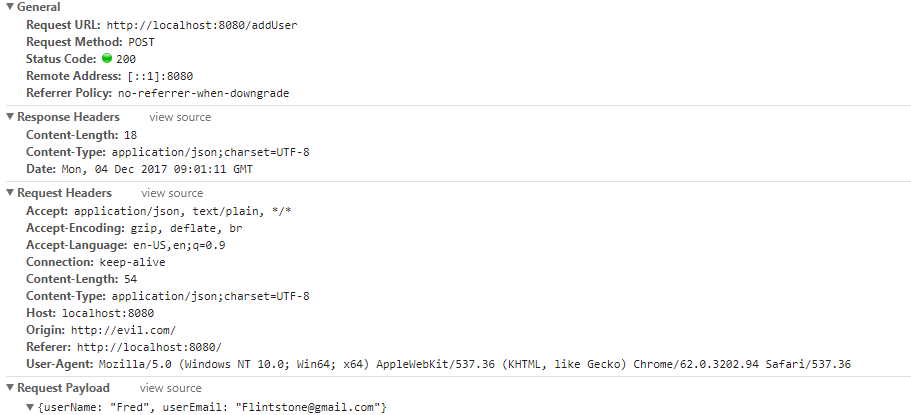axios POST request is hitting the url on the controller but setting null values to my POJO class, when I go through developer tools in chrome, the payload contains data. What am I doing wrong?
Axios POST Request:
var body = {
userName: 'Fred',
userEmail: '[email protected]'
}
axios({
method: 'post',
url: '/addUser',
data: body
})
.then(function (response) {
console.log(response);
})
.catch(function (error) {
console.log(error);
});
Browser Response:
If I set headers as:
headers:{
Content-Type:'multipart/form-data'
}
The request throws the error
Error in posting multipart/form-data. Content-Type header is missing boundary
If I make the same request in postman it's working fine and sets values to my POJO class.
Can anyone explain how to set boundary or how can I send form data using axios.

